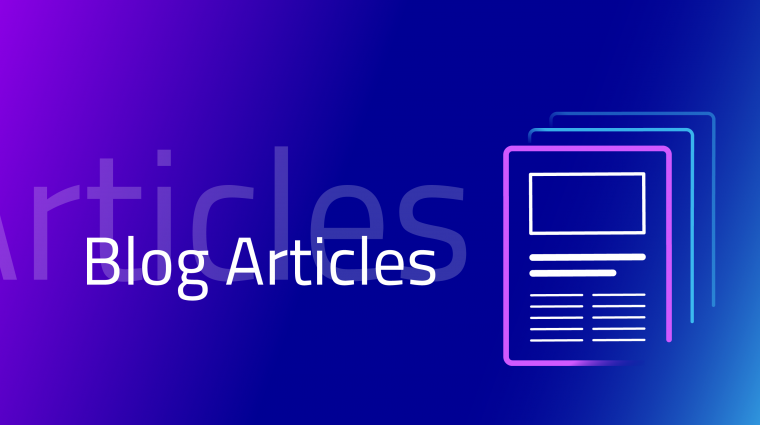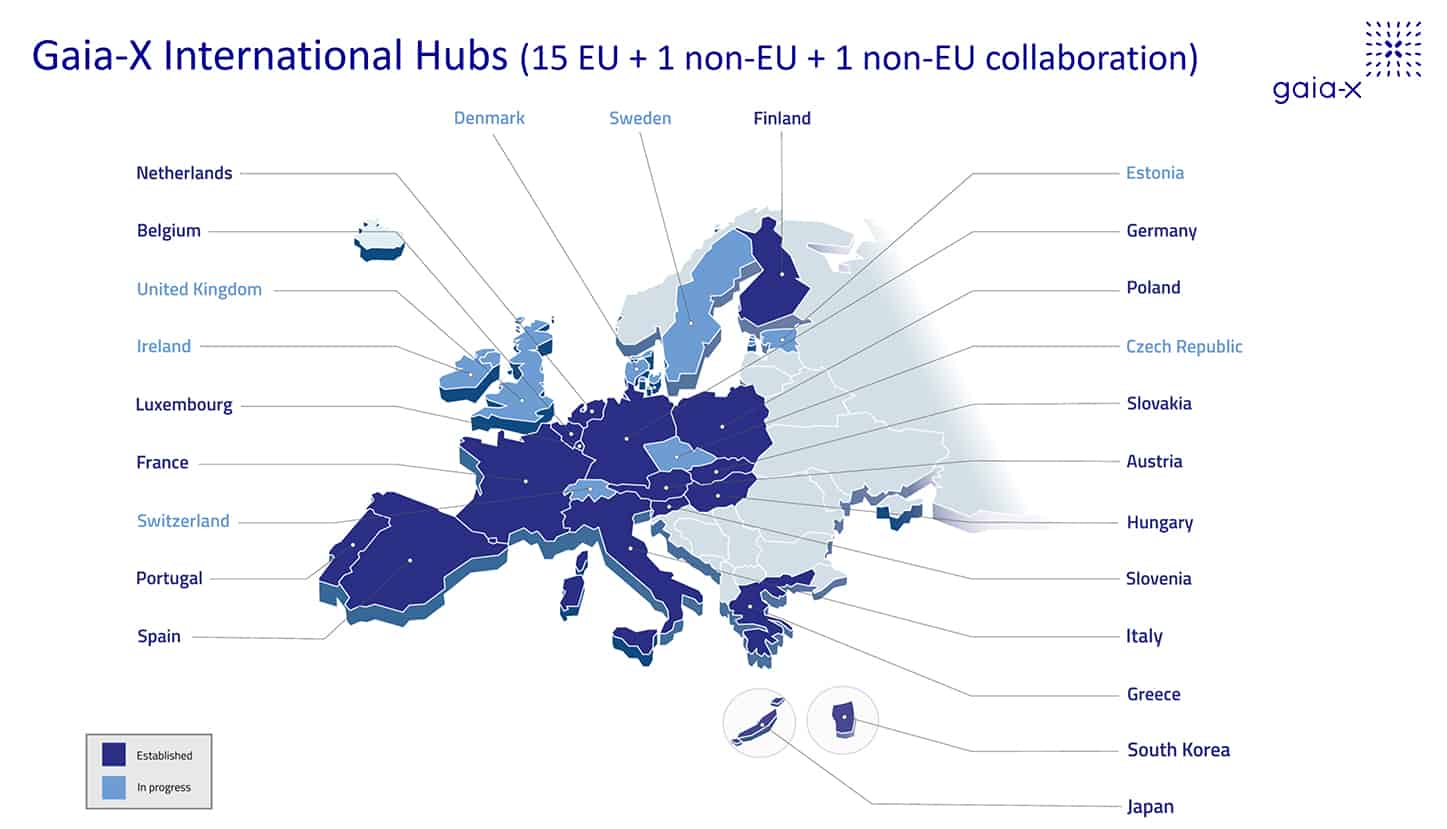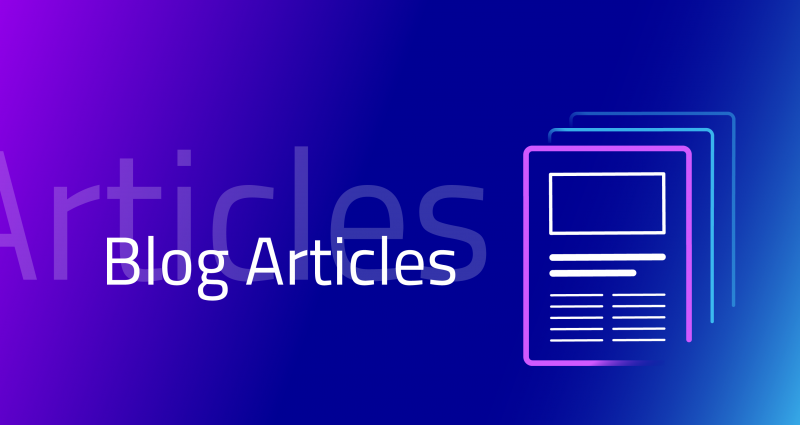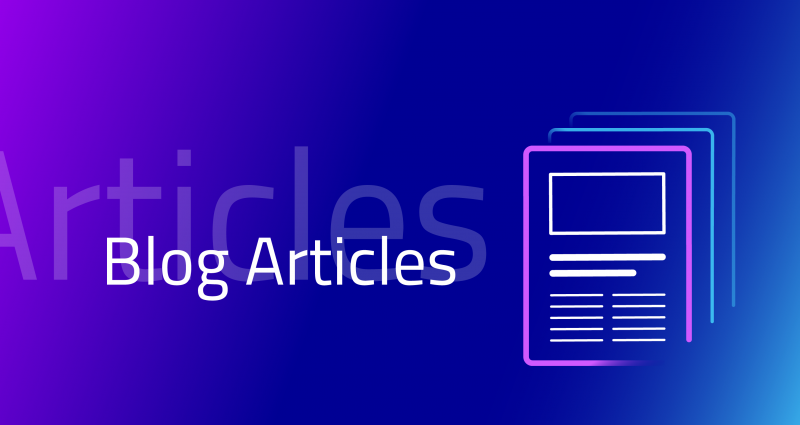
Author: Robert Goia, Stakeholder Engagement Officer, Gaia-X
Abstract:
This article addresses the equal opportunities and project benefits that the Association provides for all open source and cloud businesses, irrespective of their size and origin. Moreover, it elaborates on our non-discrimination and non-compete clauses as per the Articles of the Association of Gaia-X and the letter of comfort that DG CONNECT, European Commissions had issued earlier this year.
Introduction:
The most common misconception of the Gaia-X project is that it falls short its objectives; has not gone beyond the initial concept; lacks concrete technical delivery and fails to meet the market demands or initial expectations, without the ability to sustain its independence from the hyperscalers.
Under the Gaia-X umbrella, the Policy Rules Committee and Technical Committee offer demonstrable updates on Labels & Qualifications, Policy Rules, Compliance, Federation Services, Architecture, Trust Framework and Self descriptions and Service Characteristics. The Gaia-X’s concept established more than two years ago is defined by those committees and translates into the CTOs activity. The Gaia-X Lab most recently created software, currently in the incubation stage, based on the Gaia-X Trust Framework Service, which offers the verification of self-descriptions in accordance with the guidelines laid out in the current Trust Framework version.
Gaia-X is a not-for-profit association, not a private company or an Institution. It provides a set of specifications to foster and enable a data infrastructure ecosystem and an equal level playing field for any business, public administration, or institution, to build and deliver business services that can contribute to the wider civil society. Openness, transparency, and interoperability are key to provide cloud services and the delivery on strong data for all members. This will bring equity to the data economy and enable a data infrastructure ecosystem, where European cloud-based services are allowed to thrive. US cloud-based services currently hold more than 90% of the market share. Our goal is to reach a European market share of 20% by 2030.
Gaia-X: The data conglomerate of the future
Gaia-X is a young project that is developing its’ specifications through ideation and iteration. Now, in its second year – the Adoption – (2022), the project has released a series of direction-setting specifications, including its Architecture Document, Policy Rules, Labelling Criteria and Framework, and the Trust Framework Document, among other important documentation. Especially in terms of the Trust Framework, this is the set of rules that define the minimum baseline to be part of the Gaia-X Ecosystem. Those rules ensure common governance and the basic levels of interoperability across individual ecosystems while letting the users in full control of their choices.
Membership benefits are numerous and different for all actors. Users and providers collaborate on the definition of Data Space projects and the federation of users and providers, resulting in value for all participants and ensuring collaboration on data sharing, aggregation, and analysis. In a similar fashion, start-up firms, industry players, government institutions, research associations, and civil society are all bought together for the creation of relevant and interoperable Data Spaces.
So, what makes Gaia-X a conglomerate? In the digital world and in the European landscape, a unifying approach is needed to benefit from the data economy and stimulate growth. This requires both the trust that citizens can control their data, while simultaneously guaranteeing the European SMEs that they can use the data spaces to facilitate innovation and engage with larger organisations to form alliances and participate in value chains and consortia thanks to the mix of users and providers that compose Gaia-X.
On top of this, the collaboration between market participants, governments, and researchers helps to speed up data and information transmission, while also promoting the growth of a European Innovation Ecosystem. A common denominator and a venue where experiences, assets, and resources may be linked to go from theory to business cases can be found in Gaia-X, which brings together several associations active in digital sovereignty, data spaces, and cloud.
Influencing the uninfluenced
No member controls Gaia-X and all members have the same influence. Our clauses of non-discrimination are quite evident. Such influence is not necessarily negative and if the SMEs that are part of the same association can indeed have the same rights and responsibilities, we cannot talk about influence, but rather about stakeholder engagement in an encompassing global project that is shaped by European values.
Equal voting rights and responsibilities are two of the characteristics that make Gaia-X unique: the fact that one Member’s vote is equal to the rest of the 350 Members, a base that is constantly rising. In this ecosystem, the voice of the US or Chinese cloud-based hyperscalers is equal to that of the European large enterprises and SMEs. Especially for the latter, we are the only association that gives the same benefits to them as any other company. This democratic approach to data makes it highly difficult if not impossible to dominate through influence as the constantly rising number of members makes it increasingly expensive to buy off influence. Therefore, membership growth, together with the existent checks and balances mentioned in our statutory document is what secures the independence of Gaia-X from any ill-intent resulting from advances driven by specific individuals, sectors or companies.
Moreover, the European Commission has fully supported Gaia-X since its inception, specifically because of its compliance with Article 101 (1) TFEU, which sets the precedent of European antitrust law. In this regard, the European Commission confirms the fact that both European Members of any kind, as well as international Members of Gaia-X, can appoint or remove Members of the Gaia-X Board of Directors, which are all representatives of our member base. The Gaia-X legal build-up is what guarantees that the project remains indeed a force that leads towards European data sovereignty and possibly moves cross-border.
The independent Management Board of Gaia-X secures both the funding as well as all implementational aspects of the project. It is, in fact, the co-existence of these two Boards, the Management Board and the Board of Directors, its 3 committees and 19 working groups, 350 members, and 17 hubs that establish the contact between market demand and technological supply and provides all necessary updated through the Digital Collaboration platform, GitLab and communication activities, therefore. Liaising and acting as grassroots initiatives that connect Gaia-X with the larger community.
To put it in simple words, the three Committees in place, including the Policy Rules Committee, Data Space Business Committee, and the Technical Committee and the resulting working groups, the architecture, and policy rules to name a few are tailored to specific market needs and deliver on the necessary specifications that businesses can use to deliver the necessary services in a federated environment. Further details may be seen in the Association section of the site, available here.
For instance, the existence of Lighthouse Projects and the GXFS project present the early adopters of the Gaia-X Framework present hard-evidence of the Gaia-X delivery. These are enlisted below:
- The Gaia-X Federation Services (GXFS)project is an external Gaia-X technology framework project that is fully aligned with the Gaia-X OSS development projects. Linking existing data and infrastructure ecosystems is the primary goal of GXFS, resulting in a federated and overall interoperable ecosystem enabling participants to confidently use data and services across sector-specific data spaces.
- Agdatahub provides a shared and sovereign technological infrastructure to guarantee the development of Agricultural Technology in Europe.
- EuProGigant aims to deliver on machine connection and machine-oriented data processing using Gaia-X compliant edge architecture, thus creating resilience in the value creation ecosystem.
- Mobility Data Space facilitates Gaia-X compliant data exchange to enable competition around innovative, environmentally sustainable, and user-friendly mobility – on equal and fair terms based on shared European values.
- Catena-X – one of Gaia-X’s early initiatives is an industrial lighthouse related to automotive supply chains, aiming to establish a safe and standardised data-based ecosystem for companies across the entire automotive value chain, from OEMs to first-tier suppliers to small and medium companies.
- Smart Connected Supplier Network (SCSN) presents an open data lighthouse ecosystem where Gaia-X makes it possible to share data in a manufacturing setting, leading to quick, secure, and effective data interchange throughout the high-tech supply chain.
- Structura-X endeavours to enable existing Cloud Service and Infrastructure Providers (CSP) data and infrastructure services to be Gaia-X certifiable. The goal is to create an ecosystem of independent CSPs, orchestrated by a shared layer of federation certification and labelling services based on Distributed Ledger Technology (DLT).
Further details about the Lighthouse projects may be seen here and the GXFS here.
A Lengthy Process of Highest Stakes
Gaia-X membership secures a first-point entry for any small, medium, and large enterprises. In only two years, this project has managed to formulate an inclusive vision and strategy for the digital future of Europe and its values. Progress clearly falls on open ears, as we have seen steady growth across the board.
The Gaia-X Association is now represented by 15 European national hubs, and 2 international hubs, while currently working on bringing aboard 8 more national hubs. Together with our member increase from 270 during the EGA 2021 to 350 by mid July 2022, we can definitely point out to a growing member base to justify the trust that this project receives from the data concerned and GAFAM-concerned European businesses. Therefore, we would like to point out the necessity to leverage on stakeholders’ engagement strategy that is already built-in as part of our overall vision strategy.
It is specifically this hype created around Gaia-X that showcases the demand for European digital sovereignty to go global. It will position the EU, through the work of the Gaia-X Association, to become a regulator of the global digital economy through the policy rules and the labelling criteria set out by the market for the market, and with the EU values and codes of conduct at the core of the data ecosystem. In addition, not only will this ecosystem secure data consumers’ rights through sovereignty, but it will enable small and medium-scale cloud producers to have the market visibility of a hyperscaler, which is indeed one of our priorities.

All needs of European citizens, businesses and the public sector need to be included in one sovereign project on data ethics. Therefore, our members that really believe in the stakes of this project understand that they are either in it for the long-run, or not at all. And things would indeed need to clear this year.
This means that we do not keep anyone by force, but it also means that if the decision is to remain put as a member, the same guidelines and rules will apply to all. Gaia-X does not and will not show any preferential treatment but is willing and interested to work with our members and potential new members with one goal in mind: giving the floor to initiatives and services that will contribute to the overall data space ecosystem and turning this as open, transparent, interoperable as possible and entirely decentralised from specific owners and entities that only use data to solely serve commercial practices.
The Future is Federated
To summarise, we ought not to forget that the main driver of awareness for digital sovereignty has in many ways been the pandemic. The inception of Gaia-X in 2021 was a direct response to the large-scale adoption of a different way to adopt cloud-based services – as a necessity for the survival of the global economy. It is well known that data is the new currency of the 21st-century market. Those who own and control the access to data also own and control the access to the pathways that will help us solve some of our most crucial contemporary problems. That is why Gaia-X proposes to kickstart the data economy through a decentralised, federated, and secure data environment independent of hyperscalers.

